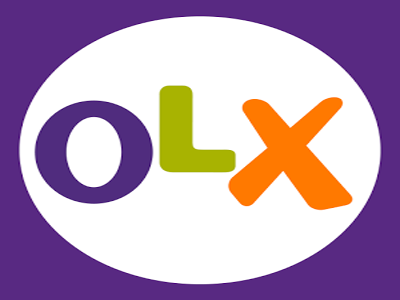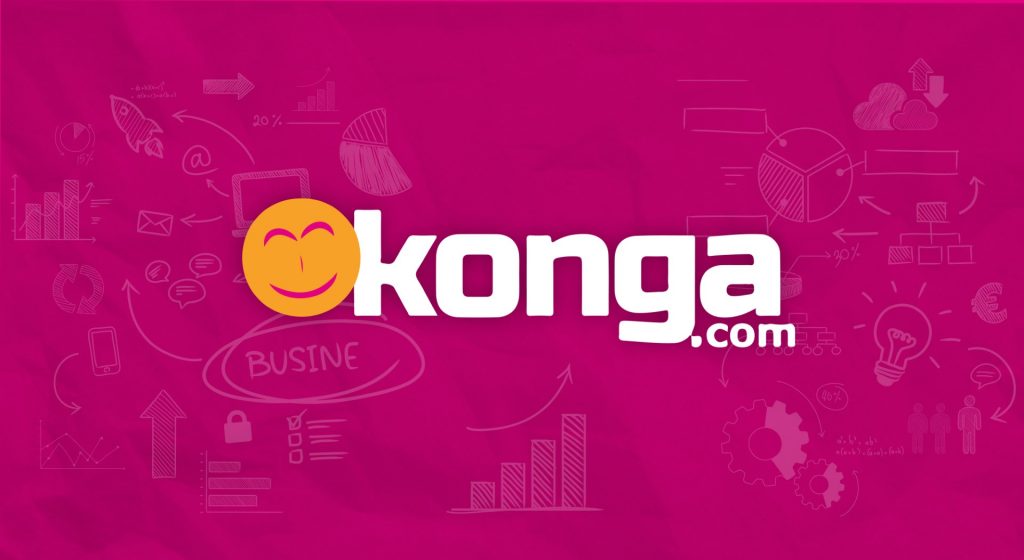If funding guaranteed success, these Nigerian startups would still be here.
But they’re not.
Nigeria is home to thousands of startups, especially in cities like Lagos and Abuja, with over 3,000 active startups, according to Statista.
Despite raising millions of dollars and attracting big-name investors, five well-known Nigerian platforms crashed, some within just a few years of launch. Their stories are not just about failure. They’re warnings.
Scaling a business in Nigeria takes more than money.
In this blog, we’ll break down what went wrong and why every CEO, founder, and investor should pay attention. From logistics nightmares to market misreads, these cases reveal the hidden costs of building in one of Africa’s toughest markets.
Why These Startups Matter
These weren’t small experiments.
Each startup on this list had serious backing from global investors like Naspers, Kinnevik, and Saltside Technologies. Their business models were built around high-potential sectors: e-commerce, classified ads, and daily deals, areas expected to explode in Nigeria’s digital economy.
But they still failed.
What went wrong wasn’t funding. It wasn’t timing. It was something deeper, a disconnect between ambition and reality. From poor product-market fit to fragile logistics and trust issues, these failures show that success in Nigeria requires more than just a good idea and global capital.
The Case Studies: 5 Startups That Crashed Hard
Before the shutdowns, these startups had funding, big plans, and serious hype. Here’s how five high-profile Nigerian platforms burned through millions, and the brutal lessons behind each fall.
OLX Nigeria

When OLX entered Nigeria, it wasn’t just another startup; it was part of a global brand backed by Naspers, one of the biggest tech investors in the world. The classifieds model had worked elsewhere. But in Nigeria, things unraveled quickly.
Despite aggressive marketing and a strong presence, OLX Nigeria shut down in 2018. Why?
- Users didn’t trust the platform: Fake listings and scam attempts made it hard to build a safe environment.
- Monetization never took off: Listings were free, and turning traffic into revenue proved difficult.
- Local adaptation was weak: OLX tried to scale without adjusting fully to Nigerian consumer habits.
The Takeaway for CEOs
Trust comes first. In a market where digital fraud is common, no online marketplace can grow without clear safety measures. Scale without trust is a recipe for failure.
Konga (Original Model) – How a $200M “Amazon of Nigeria” Crashed

At its peak, Konga was Nigeria’s poster child for e-commerce. Backed by heavyweights Kinnevik and Naspers, Konga launched in 2012 with a bold vision: build Nigeria’s Amazon from scratch. At its peak, it was valued at over $200 million, operated massive warehouses, and even launched its payment system (KongaPay).
But by 2018, Konga was a shadow of itself, acquired in a fire sale by Zinox Group after burning through cash. What went wrong?
Burned Cash on Logistics (Like a Startup Playing Dangote)
Konga owned its entire supply chain, warehouses, delivery trucks, and even a fleet of motorbikes. Sounds smart? Not in Nigeria.
- Costly Mistake: Maintaining logistics in Lagos’ traffic and poor road networks drained funds.
- Jumia’s Smarter Play: Rival Jumia used third-party logistics (cheaper, more flexible).
Poor Infrastructure = Broken Promises
- Last-Mile Nightmare: Customers waited weeks for deliveries due to bad addressing systems.
- Payment Chaos: Cash-on-delivery defaults hurt cash flow (customers rejected 30% of orders).
The Jumia Race (And How Konga Lost)
Konga tried to build like Amazon, owning much of the infrastructure, but Jumia outsmarted them by:
- Going Asset-Light: Jumia relied more on third-party logistics to reduce overhead.
- Better Tech: Smoother app, faster checkout.
- Aggressive Discounts: Konga couldn’t keep up.
The Takeaway for CEOs
Owning the full supply chain isn’t always the smartest move in emerging markets.
Konga proved that throwing money at infrastructure doesn’t guarantee success, especially in markets like Nigeria, where:
- Flexibility beats control (Jumia’s third-party logistics won).
- Unit economics > Vanity scale (Konga lost $5 per delivery).
- Local realities > Global playbooks (Amazon’s model failed in Naija).
Efritin: How a Foreign-Backed Classifieds Giant Flopped in Nigeria

Efritin was launched in 2014 by Sweden’s Saltside Technologies. It entered a market that already had players like OLX. Efritin was a well-funded classifieds platform aiming to dominate Nigeria’s online buy-and-sell market.
Why Efritin Failed
- No Trust: Users preferred Jiji (OLX) and Facebook Marketplace, free and familiar.
- Poor Marketing: Nigerians never truly understood “What is Efritin?”
- Design Flaws: The site was too slow for low-end phones.
- High operational costs: Running physical verification and support centers across Nigeria drained funds fast.
- Poor localization: The product didn’t align with how people actually searched, listed, or trusted online ads locally.
The Takeaway for CEOs
Capital doesn’t replace context. No matter how much funding you raise, ignoring cultural and market realities is a fast track to failure.
DealDey

Launched in 2011 with backing from Kinnevik (a major Konga investor), DealDey was Nigeria’s answer to Groupon (an American global e-commerce marketplace), offering daily deals on restaurants, spas, and gadgets. At its peak, it was the go-to platform for discounts.
Why did it fall apart?
- Profit-Killing Discounts: Restaurants and spas were forced into 90% off deals, destroying their margins.
- Late Payments: Many vendors complained of delayed payouts, killing trust.
- Bait-and-Switch: Customers bought deals, only to find businesses closed or refusing service.
- Shady Listings: Fake spas, expired coupons, and ghost vendors damaged the credibility.
The Takeaway for CEOs
Acquisition isn’t everything. If users and vendors don’t return, your business isn’t growing; it’s just leaking fast.
Kalahari Nigeria – How a Global Giant Got Out-Hustled in Lagos
Before OLX or Konga made headlines, Kalahari Nigeria, backed by Naspers (a $100B+ global investor in Tencent, PayU, and Takealot), launched as part of South Africa’s e-commerce expansion. It had deep pockets, tech expertise, and global logistics, everything needed to dominate Nigeria’s early e-commerce scene.
Yet, by 2015, it was swallowed up by Konga in a quiet merger. What went wrong?
Why Kalahari Failed
- No Local Trust: Unlike homegrown Jumia/Konga, Kalahari felt like a foreign import.
- Weak Branding: Nigerians never connected with its SA-centric marketing.
- Late to Logistics: While Jumia/Konga built local delivery networks, Kalahari relied on slow cross-border shipping.
- No Local Hustle: Nigerian rivals adapted faster (cash-on-delivery, local customer service).
The Takeaway for CEOs
Being early isn’t enough. Without local relevance, even a globally backed startup can lose to better-adapted competitors.
What Nigerian CEOs & Founders Can Learn
These weren’t half-baked stories. Each startup had money, momentum, and a strong investor story.
But they still failed because strategy doesn’t guarantee survival in tough markets like Nigeria.
Here’s what every Nigerian business leader must take away:
Localize or Die
Efritin & Kalahari believed global models would be effective in Nigeria. They didn’t.
Your Move: Adapt every strategy to Nigerian cash, culture, and chaos.
Growth ≠ Success
Konga & DealDey scaled rapidly without generating profits. They collapsed.
Your Move: Prove unit economics first, then expand.
Discounts Are a Trap
DealDey trained Nigerians to expect 90% off. Businesses bled out.
Your Move: Build real value, not just bargain addicts.
Foreign Money ≠ Survival
Efritin (Sweden) & Kalahari (SA) had deep pockets. Local hustle beat them.
Your Move: Investors love traction, not just “potential.”
Tech Without Trust Is Useless
OLX Nigeria lost users to fraud. No trust = no business.
Your Move: Build trust systems (escrow, verified sellers, real customer service).
Your Survival Checklist:
- Does your model work in Lagos traffic? (If not, rethink it.)
- Are you solving a Nigerian problem or a Silicon Valley fantasy?
- Can you survive if investors stop writing checks tomorrow?
Conclusion
These fallen giants, Konga, OLX, Efritin, DealDey, and Kalahari, weren’t doomed by bad luck. They were killed by avoidable mistakes that still trap businesses today.
For today’s CEOs, the lesson is clear:
In Nigeria, success isn’t about who raises the most; it’s about who understands the market best.
